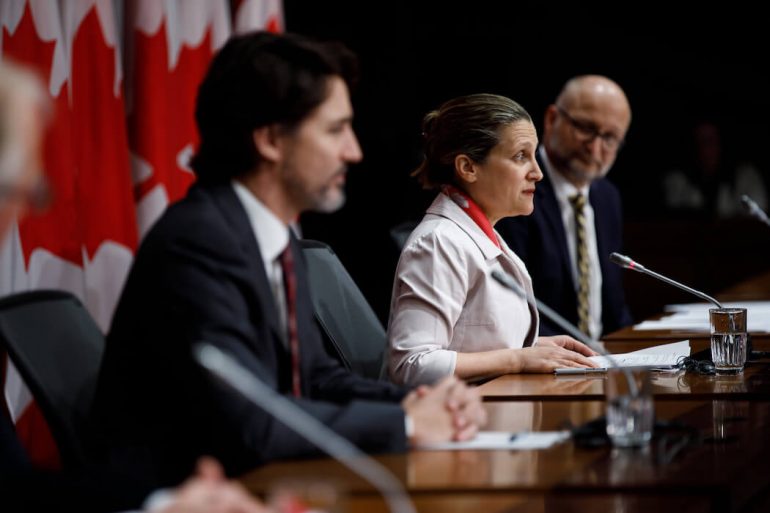A new open letter addressed to Finance Minister Chrystia Freeland was released by a collection of business groups this morning, maintaining pressure on the federal government to walk back plans announced in the 2024 budget to increase the capital gains inclusion rate from 50 percent to 66.7 percent.
The business groups claim the changes will diminish the creation of companies and jobs, and alter “the delicate risk-reward balance of countless investments.”
The letter calls for the government to scrap the inclusion rate increase but praises increasing the Lifetime Capital Gains Exemption to $1.25 million. Its signatories include the Canadian Chamber of Commerce, the Canadian Federation for Independent Business (CFIB), the Canadian Manufacturers and Exporters (CME), the Canadian Venture Capital and Private Equity Association (CVCA), the Canadian Franchise Association (CFA), and the Canadian Canola Growers Association (CCGA).
“While this proposed measure attempts to provide a solution to Canada’s deficit, it is shortsighted and complex, and it sows division at a time when we need a Team Canada approach to economic growth,” the letter reads.
The letter alleges the inclusion rate increase “will limit opportunities for all generations and make Canada a less competitive, and less innovative nation.” It goes on to decry the tax system becoming “a complicated web of carve-outs and caveats” and calls for an end to “tax-and-spend politics.”
RELATED: How Canada’s capital gains tax changes might impact Canadian tech
The government says the changes would impact 0.13 percent of the population (around 40,000 people) and bring in $19.4 billion in revenue over five years, with the stated aim of allocating billions in spending on housing and other priorities and increasing tax fairness between middle-class and wealthy Canadians. The business groups claim the changes will diminish the creation of companies and jobs, and alter “the delicate risk-reward balance of countless investments.”
The letter is a continuation of the response immediately following the budget’s release, which struck a nerve with the Canadian tech ecosystem and resulted in the Council of Canadian Innovators (CCI) calling on Ottawa to claw back the changes in an open letter titled “Prosperity For Every Generation” that has now received approximately 2,000 signatures.
“We’re already in a climate in Canada where raising capital is an issue,” CCI president Ben Bergen said in an interview with BetaKit last month, underlining high interest rates and inflation as macroeconomic headwinds. “[This] potentially leads to some real risks about whether or not locals will continue to invest in companies.”
There have been some dissenting opinions in the Canadian tech space, notably Ali Asaria, founder and chair of Tulip, who reminded the audience at this week’s BetaKit Town Hall that many Canadians are struggling and that most support the tax hike, regardless of age, geography, or political affiliation.
“I don’t know if we realize how we are being perceived if we’re all coming together on this one issue,” Asaria said in front of a room filled with almost every major Canadian VC firm, tech community organizations, and tech founders. “Tech is presenting itself as existing in a bubble.”
RELATED: Capital gains tax changes not included in feds’ Budget 2024 motion bill
Following the outcry, Freeland met with a group of Canadian technology industry leaders in Toronto to discuss the changes. which appeared to signal a willingness to work with the industry. However, she doubled down in a press conference following the meeting.
“The rate that we have set means capital gains will—again without the $250,000 tier—be taxed at a lower rate than they are in California or in New York City,” Freeland said. “And I do really want to say, we believe in this budget. We really believe in the investments this budget is making.”
However, the proposed changes were notably absent from the motion the Liberal government tabled at the end of April to introduce Budget 2024 in the House of Commons. It appears the government intends to introduce the changes in separate legislation.
Bergen speculated that separating the capital gains measures would line up Conservatives to directly vote against the measure, or to “remove the problem child” from the budget, while CD Howe Institute CEO William Robson told BetaKit it could be as simple as the government not having the changes written out yet.
Feature image courtesy Flickr.


